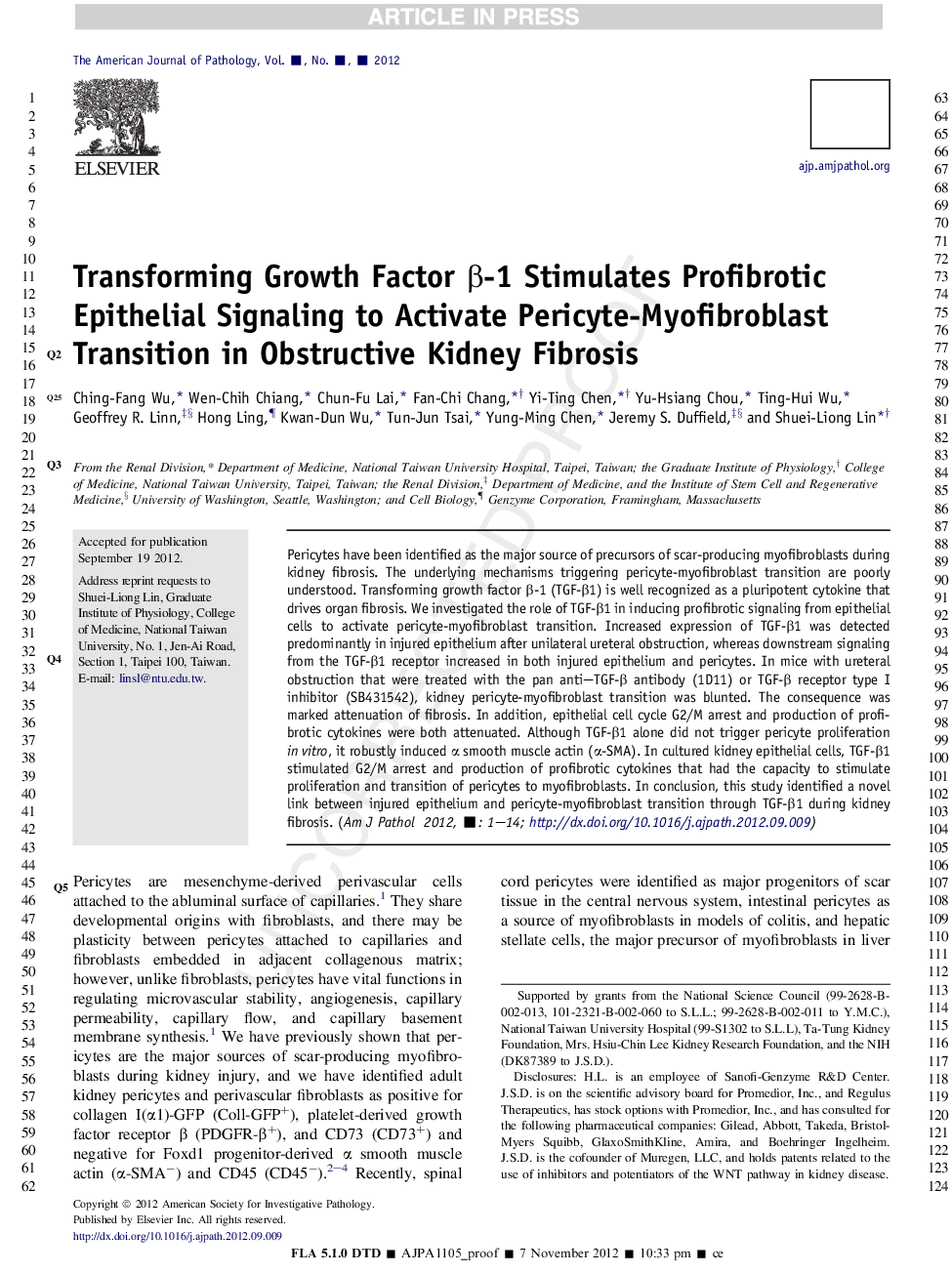| Article ID | Journal | Published Year | Pages | File Type |
|---|---|---|---|---|
| 5934761 | The American Journal of Pathology | 2013 | 15 Pages |
Abstract
Pericytes have been identified as the major source of precursors of scar-producing myofibroblasts during kidney fibrosis. The underlying mechanisms triggering pericyte-myofibroblast transition are poorly understood. Transforming growth factor β-1 (TGF-β1) is well recognized as a pluripotent cytokine that drives organ fibrosis. We investigated the role of TGF-β1 in inducing profibrotic signaling from epithelial cells to activate pericyte-myofibroblast transition. Increased expression of TGF-β1 was detected predominantly in injured epithelium after unilateral ureteral obstruction, whereas downstream signaling from the TGF-β1 receptor increased in both injured epithelium and pericytes. In mice with ureteral obstruction that were treated with the pan anti-TGF-β antibody (1D11) or TGF-β receptor type I inhibitor (SB431542), kidney pericyte-myofibroblast transition was blunted. The consequence was marked attenuation of fibrosis. In addition, epithelial cell cycle G2/M arrest and production of profibrotic cytokines were both attenuated. Although TGF-β1 alone did not trigger pericyte proliferation in vitro, it robustly induced α smooth muscle actin (α-SMA). In cultured kidney epithelial cells, TGF-β1 stimulated G2/M arrest and production of profibrotic cytokines that had the capacity to stimulate proliferation and transition of pericytes to myofibroblasts. In conclusion, this study identified a novel link between injured epithelium and pericyte-myofibroblast transition through TGF-β1 during kidney fibrosis.
Related Topics
Health Sciences
Medicine and Dentistry
Cardiology and Cardiovascular Medicine
Authors
Ching-Fang Wu, Wen-Chih Chiang, Chun-Fu Lai, Fan-Chi Chang, Yi-Ting Chen, Yu-Hsiang Chou, Ting-Hui Wu, Geoffrey R. Linn, Hong Ling, Kwan-Dun Wu, Tun-Jun Tsai, Yung-Ming Chen, Jeremy S. Duffield, Shuei-Liong Lin,
